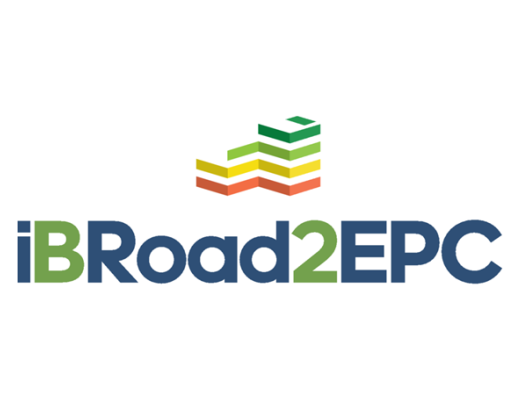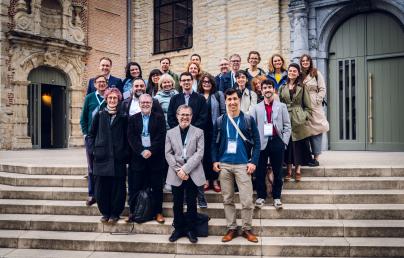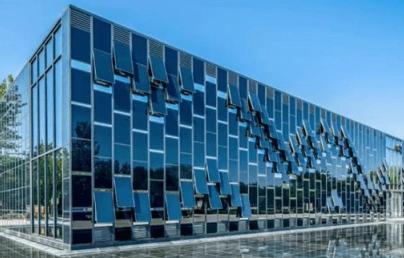
Positive perspectives for the iBRoad2EPC model Renovation Passport

Positive perspectives for the iBRoad2EPC model Renovation Passport
Field studies confirm iBRoad2EPC as a useful tool supporting the deep renovation of the EU building stock under the provisions of the 2024 Energy Performance of Buildings Directive (EPBD) recast.
Energy experts in Bulgaria, Greece, Portugal, Romania and Spain have successfully tested and positively assessed the iBRoad2EPC model building Renovation Passport, developed as part of the iBRoad2EPC Horizon 2020 funded project. The comprehensive field test involved 48 energy experts and 37 building owners who evaluated the application of iBRoad2EPC in 57 residential and non-residential buildings between July 2023 and March 2024. Energy experts found iBRoad2EPC easy to use, and building owners found the output extremely informative and useful in planning a step-wise deep renovation of their building. Overall, the field test demonstrates that the iBRoad2EPC Renovation Passport, together with the Energy Performance Certificate, has significant potential to support the implementation of the 2024 EPBD recast and help meet the EU's building decarbonisation targets.
A flexible tool that complements EPCs
The ambition of the iBRoad2EPC project has been to develop a capable tool that is sufficiently flexible and affordable to trigger a major increase in the number of deep (nearly zero or zero emissions) building renovations, across varying country contexts. In this sense, it was conceived as a complement to existing national Energy Performance Certificate (EPC) schemes, to be jointly issued by a qualified or certified energy expert, following an on-site visit.
The developed iBRoad2EPC is a flexible model Renovation Passport that brings together the benefits of the EPC, as an established tool to assess the energy performance of a building, with those of a tailored roadmap for its deep renovation in a maximum number of steps, significantly improving the building’s energy performance. Adding new components to this combined approach –covering, e.g., Energy Demand, Investment Cost, Smart Readiness, Indoor Environmental Quality, Measured Energy Performance and others– iBRoad2EPC aims to give renovation a significant push and contribute to the improvement of the energy performance of European buildings, while providing for health, comfort, cost-effectiveness and energy security.
Designed as a modular tool, the iBRoad2EPC Renovation Passport allows adaptation to various existing EPC schemes or country-specific ambitions and contexts. Such flexibility is now reflected in the provisions of the 2024 EPBD recast that allow Member States to determine the extent to which Renovation Passports and EPCs should be linked. As such, the results of the iBRoad2EPC project are highly relevant and provide Member States with a set of solutions that can be immediately applied to the transposition and/or implementation of this, as well as other, important EU policy instruments.
Testing
A field test in six pilot countries (Bulgaria, Greece, Poland, Portugal, Romania and Spain) examined how iBRoad2EPC is perceived by relevant end-users (energy experts and building owners/building managers).
Before field testing, a total of 202 energy experts in the six pilot countries were trained on how to issue the iBRoad2EPC. The overall evaluation following the training showed predominantly positive feedback:
- 86% of trained experts saw potential in merging iBRoad2EPC and EPCs
- 91% said they would offer an iBRoad2EPC to their clients
Of the energy experts trained, 48 participated in the field test and issued 57 iBRoad2EPCs, covering a built area of almost 280,000 m2, of both residential and non-residential buildings, with a particular focus on public buildings. An overview and main highlights of the iBRoad2EPC field test are summarised below.
Main outcomes
The experience of the experts and the building owners/building managers who took part in the testing was collected through a survey. The key findings of the evaluation are the following:
- Both experts and owners favoured the voluntary integration of iBRoad2EPC alongside the EPC, reflecting the tool's potential to enhance energy efficiency and cost-effectiveness in building renovations.
- In terms of pricing, 35% of the experts and 31% of the building owners consider a surcharge of more than 100% on top of the price of the EPC to be reasonable. This demonstrates the perceived value and potential of iBRoad2EPC in contributing to energy-efficient renovations and climate protection.
- Building owners reported that their main motivation for renovating is to save on energy costs, followed by introducing qualitative improvements to their buildings and contributing to climate change mitigation. While energy and cost considerations were important across all pilot countries, climate protection was more important in some than in others; this suggests different national priorities. During the development of iBRoad2EPC, cost-effectiveness was not the priority focus, because cost-effective renovations do not always meet climate targets: there is a clear discrepancy between renovation costs and incentives on one hand, energy and CO2 pricing on the other. However, to meet the market demand for information on cost savings through renovation, as evidenced in the field tests, a more detailed cost calculation for the first renovation step can be implemented in iBRoad2EPC as an additional improvement. The short time span until this first step allows for more reliable predictions and increases the confidence in the results of such a cost calculation.
- Building owners and property managers are largely supportive of the mandatory on-site visit component of iBRoad2EPC, despite the extra work involved for the experts.
- Overall, end users agree on the usefulness of iBRoad2EPC for multi-family and public/administrative buildings, recognising its ability to provide essential insights for long-term renovation planning and proactive mitigation of lock-in situations. Feedback from energy experts and building owners, alongside considerations for the iBRoad2EPC pricing structures, underscore the perceived value and potential of iBRoad2EPC in facilitating energy-efficient renovations and climate change mitigation efforts.

